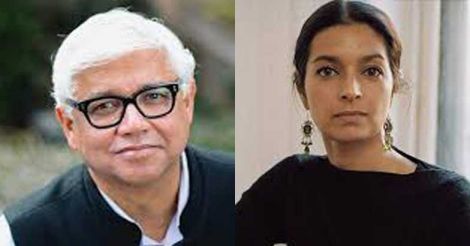The sense of yearning for the motherland is the most overwhelming sentiment of the Indian diaspora, wherever it exists. When travel was hazardous and unusual, the yearning was intense, as they knew well that they would never return home. Though the age of technological advancement has made traveling easier and the distance shorter, their imagination continued to nurse the feeling of inadequacy in being away in a distant land. Their nostalgia, together with a curious attachment to the homeland’s traditions, religions and languages gave birth to diaspora literature. The migrant, who leaves his homeland runs from pillar to post, crossing the boundaries of time and money to become one with his new surroundings, but longs to return home at an appropriate time. Consequently, he remains a creature of the edge, the “peripheral man”, as V.S. Naipaul calls him. According to Naipaul, the Indians are well aware that their journey to Trinidad was final, but these tensions and throes remain a recurring theme in the diaspora literature.
The literary talents of the diaspora found expression first in adversity and flourished with the advent of prosperity. The writers later began mixing nostalgia with criticism of evils in the Indian society in contrast with their host countries. Some of the most prominent Indian writers in English belong to the diaspora. V.S.Naipaul, Salman Rushdie, Amitav Ghosh, Jhumpa Lahiri and Shashi Tharoor are diaspora writers. Even Vikram Seth and Rohinton Mistry became creative after they began to live abroad. Our own Anita Pratap has said that great creativity comes out of great departures. The greater the pangs of departure, the greater the literature.
V.S.Naipaul is easily the most outspoken critic of India among the diaspora writers. His sarcastic comments on India and the Caribbean and his decisive appraisal of Muslim fundamentalism in non-Arab countries have been topics of ruthless denigration. Undeterred by opposition from his homeland as well as his host country, Naipaul continues at the epicenter of literary development even today. Salman Rushdie spearheaded the renaissance of Indian writing in English with his path-breaking novel, Midnight’s Children. His work revolves around the Indian subcontinent as a vital theme and his “paranormal pragmatism” has a certain appeal to Indians. Amitav Ghosh has created some of the most lyrical and insightful works on the consequences of colonialism on the natives. Jhumpa Lahiri started a new trend by poignantly portraying the lives of a family of immigrants in her first novel, “The Namesake” through the eyes of a young boy. Shashi Tharoor wrote a biting political satire on Indian politics in his “The Great Indian Novel” by narrating the Mahabharata story in modern terms.
Much significant diaspora literature exists in regional languages, including Malayalam. Diaspora newspapers, magazines, television and websites in modern times look critically at India. Their commentaries rejoice over the success of India, but caustically criticize failures. Those in developed countries feel impatient that India is not progressing as fast as it should. They constantly advise India what it should be doing to develop faster, without taking constraints into account.
While the first generation immigrants from India constantly nurse their grievances against the homeland, the second and third generations look at India without prejudices and take pride in India’s accomplishments. For them, India is a brand name, which they can use for their own advancement and they become true assets for the country. This feeling of elation at India's exalted status is present in the writings of young people.
The diaspora literature is fascinating, but it is equally complex and unique. Many writers got recognition initially as the proponents of a new genre belonging exclusively to overseas Indians. But today, many writers have become mainstream contributors to global literature. They have come of age and get counted without their identity as migrants with their feeling of estrangement with both the homeland and the host countries.
(The author is a former diplomat who writes on India's external relations and the Indian diaspora.)

























